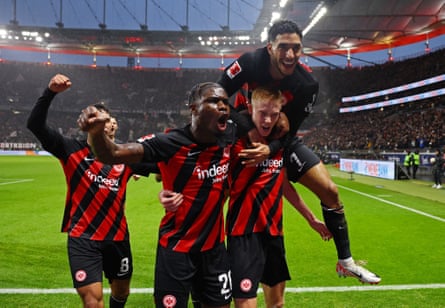
EEgypt’s period of success at the Africa Cup of Nations in the late 2000s was characterized by forward-thinking attackers who appeared to have only one instruction in mind when they entered the pitch: to go for the goal. In 2006, the duo Ahmed Hassan and Emad Moteab scored eight of Egypt’s 12 goals. Two years later, the triumvirate of Hosny Abd Rabo, Mohamed Aboutrika and Amr Zaki each scored four goals. In 2010, alongside super substitute Gedo, it was Hassan again who scored an average of a goal every 35 minutes.
With Mohamed Salah, the national team now has its best goalscorer of all time. But the mentality has changed somewhat and he has only scored six goals in three Afcon editions, two in each. Combine that with the fact that he is relied upon as Egypt’s chief creator and one thing becomes clear: he needs help.
Since the golden generation of the late 2000s, Egypt has played in two Afcon finals, losing to Cameroon in 2017 before losing to Senegal in 2022. But it also caused them to crash in their final act.
That doesn’t mean defensive football is bad. Sometimes it is necessary. The stark reality of competitive football is that tactical acumen is often required to progress. Not a single Egyptian would have paid any attention to the style of play if Salah and Co. had won one of those Afcon trophies. But recent defeats show the obvious: a balance needs to be struck. Defensive stability can only take you so far. You need decisive executors (note the plurality of the word) who you can rely on when it matters most. If Egypt travel to the Afcon again relying solely on Salah to carry the scoring load and creativity, then the end of their story will be a familiar one.
Egypt’s current forward line consists of Salah and Mahmoud Hassan, better known as Trézéguet, on the wings and Nantes’ Mostafa Mohamed in the centre-forward role. All three are in good form for their club teams, but there is another player who could prove to be a huge goal threat and potential relief for Salah: Omar Marmoush.
The 24-year-old has developed well since joining Eintracht Frankfurt last summer, taking the place of the seemingly irreplaceable Randal Kolo Muani. Marmoush is now Eintracht’s top scorer, having already surpassed his best attacking statistics of the entire season with seven goals and three assists in 14 league games.
His most memorable performance of the season so far came in Frankfurt’s 5-1 win over Bayern Munich with a goal and two assists, but his performance is more impressive when you consider the variety of goals he provides. Whether he’s overwhelming defenses, scoring with long-range shots or dribbling through a line of bodies before finding the net, Marmoush is a player who has changed.
He is a winger by trade, but under Dino Toppmöller he has gotten used to playing higher up. His newfound versatility to play as a lone striker or as part of a two-man group has helped sharpen his instinct for hitting the net. “Omar is a very good player who has now discovered the ability to score goals,” said Toppmöller after Frankfurt’s 3-0 win against Union Berlin, in which Marmoush scored the first two goals. “We work with him there. The goals coming his way at the moment are just a reward for the hard work he is doing for us.
“Because of his speed, he always has moments that are uncomfortable for a defender when he runs so deep. But he now also has the feel for constantly getting into dangerous areas and helping us with his footballing technique.”

His progress this season has not gone unnoticed by Egyptian coach Rui Vitória, who recently mentioned Marmoush alongside Mohamed as his team’s goal threat, raising the question of whether we might see him in a new role.
after newsletter advertising
Mohamed is more of a traditional number 9, threatening Egypt from the air and working tirelessly to outplay the centre-backs he faces. Still, he can feel isolated. Marmoush, who averages more shots on goal, chances and progressive runs per 90 minutes than Mohamed and Trézéguet, can drop deep, dribble out of tight spaces and create chances for his teammates, such as Salah.
Egypt now finally has advance information options, something that has not been the case for more than a decade. The hope is that Vitória recognizes when its strikers’ unique strengths are needed and acts accordingly.
Since the triumph in 2010, Egypt has found itself in a strange position. They are often touted as one of the Afcon favorites because of their aura and Salah, but they weren’t very good. The teams defend incredibly deep against the Pharaohs, but because they lack the quality going forward, they also play defensive football.
The result is, at best, 90 minutes of abject boredom, not worth it for Egypt fans when another team inevitably lifts the trophy. In Ivory Coast we can still expect the same combative Egypt of the last decade, but perhaps this time as the ball moves into the final third there will be a little more of the fluid football that fans have come to expect from the golden generation .
Salah has long been the shining star of the Pharaohs and will likely remain so for some time to come. Since his debut, he has been constantly in the spotlight, tasked with representing a mediocre team. But it wasn’t enough. Because for every big name there has to be a suitable support act. Marmoush can be just that if given the chance.
